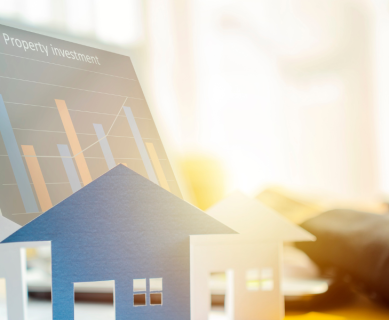Are you ready to uncover the future of residential real estate? As the world continues to evolve, the housing market is poised for a remarkable transformation, and the stage is set for a dynamic 2030. But just how significant will these changes be, and what factors will drive the future of residential real estate?
According to a study conducted by the OECD, the COVID-19 pandemic critically modified the way people view their own homes. The study predicted that the experience likely changed housing preferences, with many residents wanting more space, notably to accommodate teleworking, even if it implied living further away. Simultaneously, the value of proximity to offices and consumer services would diminish amid the rise of teleworking and online services. Despite initial predictions of the demise of big cities, the reality is not as dark as it seems. A detailed model created by Fortune demonstrates that the future demand in “superstar cities” worldwide reveals a substantial reduction in office and retail space demand but a stable (however slow) growth in the demand for residential spaces.
The analysis shows that the demand for office spaces will drop by up to 20% due to the growth of hybrid and remote work, and the demand for retail space will fall by 22% in 2030 compared to 2019. However, residential real estate demand will suffer less, and superstar cities will enjoy a higher demand in 2030 than in 2019, albeit lower than what it would have been without the pandemic.
Key Takeaways
- The COVID-19 pandemic has significantly shifted housing preferences, with more people seeking larger living spaces and accommodations for remote work.
- Despite initial predictions, the demand for residential real estate in “superstar cities” is expected to remain stable, even as the demand for office and retail space declines.
- The residential real estate market is poised for a steady climb in market valuation, showcasing the resilience and growth potential of the sector.
- Urbanization in developing nations and overconsumption challenges in developed countries will influence the residential real estate market in different ways.
- Digital acceleration and the rise of proptech are reshaping the way the residential real estate industry operates, with a growing emphasis on sustainability and ESG principles.
The Transformation of Home Buying Preferences Post-Pandemic

The residential real estate market has experienced a profound shift in consumer preferences in the wake of the COVID-19 pandemic. According to the OECD study, the pandemic has critically modified the way people view their own homes, leading to a change in housing preferences that is likely to have a lasting impact.
More Space, Teleworking Accommodations, and Rural Appeal
The OECD study predicted that the pandemic experience has prompted many residents to desire more space, particularly to accommodate the rise of teleworking. This shift in preference has meant that some consumers are willing to live further away from urban centers, trading proximity to offices and consumer services for the ability to work remotely and enjoy more living space.
The Lasting Impact of COVID-19 on Housing Choices
The OECD study provides valuable insights into the lasting impact of the COVID-19 pandemic on housing choices. The findings suggest that the pandemic has transformed home buying preferences, with a greater emphasis on larger living spaces and accommodations for remote work. This shift in priorities is likely to continue shaping the residential real estate market in the years to come, as consumers seek to adapt their living situations to the evolving demands of the post-pandemic world.
A Steady Climb in Market Valuation
The global residential real estate market size had finally reached an impressive USD 8,842.80 billion in 2022, with projections suggesting a remarkable surge to USD 19,525.11 billion by 2031, which reflects a robust CAGR of 9.20% (2023-2031). This steady climb in market valuation indicates the resilience and growth potential of the residential real estate sector, despite the initial challenges posed by the pandemic.
The housing market has demonstrated its ability to adapt and thrive, even in the face of extraordinary circumstances. This surge in market trends and housing demand is a testament to the fundamental strength and appeal of residential real estate as an investment and a place to call home.
With the rise of digital acceleration and the increasing influence of ESG principles, the residential real estate industry is undergoing a profound transformation. Homebuyers and investors alike are seeking out properties that not only meet their home-buying tips but also align with their values and priorities for sustainable living. This shift in preferences is driving the industry to adopt innovative proptech solutions and embrace eco-friendly practices, ensuring that the residential real estate landscape of 2030 and beyond is both prosperous and environmentally responsible.
Drivers of Urban Expansion
The residential real estate market is a complex landscape, with a dichotomy emerging between the rapid urbanization in developing nations and the overconsumption challenges faced by developed countries. This dynamic significantly influences the trajectory of the housing industry.
While emerging economies like Brazil, Argentina, South Africa, India, and China are experiencing a surge in migration to major cities, fueling a robust demand for residential real estate, the developed world is grappling with a different set of challenges. Developed nations are encountering more saturation in their large urban centers, driven by factors such as overpopulation, pollution, and economic constraints. This overconsumption in affluent countries is a critical factor contributing to the slower expansion of the residential real estate market globally.
However, the urbanization in developing countries is not without its own risks. The influx of people to urban centers in these nations can lead to increased social instability, threats to critical infrastructure, shortages of vital resources, and the spread of diseases. To address these interconnected challenges, a holistic approach to urban planning and governance is urgently needed.
How Technology is Reshaping Residential Real Estate

The residential real estate industry is undergoing a digital revolution, as online platforms and emerging technologies reshape how properties are marketed, sold, and managed. This digital acceleration is being driven, in part, by the preferences and behaviors of millennials, who accounted for 55% of new home buyers in 2023.
The Millennial Influence on Real Estate Technology Adoption
Millennials, a generation known for their tech-savvy approach, are leading the charge in the adoption of real estate technologies. As this influential demographic seeks and acquires homes, the industry is adapting by embracing technologically oriented business models to cater to their needs.
Embracing Sustainable Design in Residential Real Estate
The market trends in residential real estate are increasingly leaning towards sustainability, driven by a shift in focus towards environmental, social, and governance (ESG) principles and advancements in proptech. As the industry navigates the challenges of urban growth and evolving housing demands, embracing sustainable design has become a pivotal strategy for success.
Government Regulations and Sustainable Development Incentives
Government regulations and incentives are playing a crucial role in driving the demand for eco-friendly practices in the residential real estate sector. Policymakers are implementing stricter building codes, energy efficiency standards, and tax credits to encourage the adoption of sustainable design principles, including Building Information Modeling (BIM) and the use of environmentally-friendly building materials. These initiatives are shaping the market trends, as developers and homebuyers alike strive to meet the growing expectations for sustainable living spaces.
Proptech’s Role in Advancing ESG Principles in Real Estate
Advancements in proptech, the integration of technology in the real estate industry, are enabling sustainable solutions that are transforming the residential real estate landscape. Innovative technologies are empowering homeowners to lower energy consumption through smart home features, streamline resource management, power smart urban planning, promote accountability and transparency, and facilitate sustainable property maintenance and water/air quality monitoring. By embracing these proptech innovations, the industry can drive progress towards more eco-friendly and efficient residential communities that align with the evolving ESG principles.
The Increasing Influence of ESG Principles in Housing Market Trends
The residential real estate industry is increasingly embracing environmental, social, and governance (ESG) principles, which are shaping market trends. Homebuyers and investors alike are placing a greater emphasis on sustainable living spaces, driving developers and builders to incorporate green technologies and sustainable design practices to meet this growing demand.
The Race for Carbon-Neutral Living Spaces
Across the housing market, there is a race to create carbon-neutral living spaces. Developers are investing in renewable energy sources, energy-efficient building materials, and smart home technologies to reduce the carbon footprint of residential properties. This shift towards eco-friendly construction and design is not only appealing to environmentally conscious consumers but also aligning with the sustainability goals of local governments and industry regulators.
The Surge in Demand for Green Residential Projects
Investors have also embraced the trend towards ESG-focused housing, recognizing the long-term value and environmental benefits of sustainable living spaces. Green residential projects are increasingly in high demand, as investors seek to capitalize on the growing market for energy-efficient, low-emission homes and apartments. This surge in investor interest is further fueling the industry’s drive to incorporate sustainable design principles and green technologies into new residential developments.
By embracing sustainable practices and eco-friendly design, the industry is poised to meet the growing demand for carbon-neutral living spaces and secure its long-term position in the dynamic and evolving housing market of 2030.
Get ahead today with Property Finance International
By staying informed and adapting to the changing landscape, industry professionals can position themselves for success in the dynamic and evolving residential real estate landscape of 2030. Property Finance International, your premier financial partner, specializes in securing tailored property financing solutions worldwide. Whether you’re a property developer or investor, our extensive network of lenders and partners ensures seamless access to funding for your projects. If you’re interested in discussing your financing needs, talk to our experts today!









